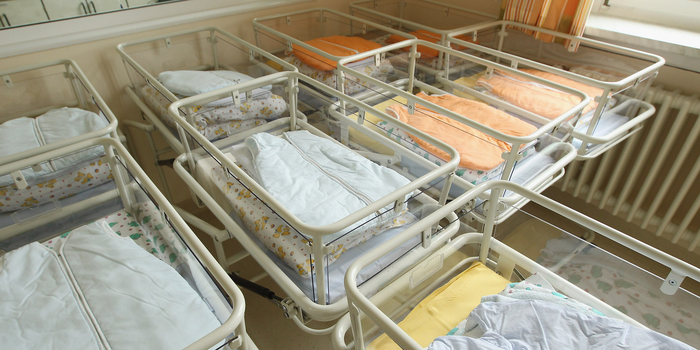
Photo by Sean Gallup/Getty Images
The United States continues to have the highest maternal mortality rate of any developed country, according to the CDC’s National Center for Health Statistics. A new report presenting the most recent data on maternal mortality found that in 2021, there were on average 32.9 deaths per 100,000 live births across the country. In total, 1,205 women died of maternal related causes in the United States in 2021. To place these statistics in a global context, the UK has an average of 9.6 maternal deaths for every 100,000 births.
The CDC’s report shows a significant increase in maternal mortality compared to the previous years. The average rate in 2020 was 23.8 per 100,000 and in 2019, 20.1. Additionally, the report highlights a disturbing racial disparity, with Black women experiencing a staggering 69.9 deaths per 100,000 births in 2021, as opposed to White women’s rate of 26.6 per 100,000. The shocking death of Olympic sprinter Tori Bowie last week due to childbirth complications exemplifies the pervasiveness of this issue, even amongst the healthiest top athletes.
The COVID-19 pandemic clearly exacerbated the country’s maternal mortality crisis, but the impact of the rise in abortion restrictions cannot be ignored. The states with the highest rates of maternal mortality are Arkansas, Mississippi, Tennessee, and Alabama, closely followed by many other Southern states. These states have between 41.4 and 43.5 deaths per 100,000 live births. Unsurprisingly, all four of these states have some of the country’s harshest abortion restrictions, with near total bans on abortion. Even prior to the overturn of Roe v. Wade, access to abortion in these states was extremely limited.
In contrast, California has the country’s lowest maternal mortality rate, with only 4 deaths per 100,000 births. Abortion access is enshrined in the state constitution. Under California law, anyone who is pregnant has a legal right to choose to have an abortion before viability or, in life threatening instances, at any time throughout the pregnancy. The California state legislature also passed a bill to ensure no one in California will be “investigated, prosecuted or incarcerated for ending a pregnancy or experiencing pregnancy loss.”
It is no coincidence that access to reproductive healthcare correlates with low levels of maternal mortality. A 2020 report by the Commonwealth Fund found that states with heavily restricted abortion access had 62% higher maternal death rates than states where abortion was more easily accessible. Many abortion bans criminalize healthcare providers and doctors fear losing their license, being fined, or imprisoned for performing an abortion, even in a medical emergency. Pregnant individuals may then be forced to resort to illegal and unsafe abortion options. The closing of clinics that offer abortion also decreases access to pre- and post-natal care, along with other vital reproductive healthcare services.
Maternal mortality is a grave public health issue within the United States, intensified by institutional racism and misogyny. Access to women’s reproductive healthcare, before, during, and after pregnancy, must be prioritized and protected. It is, quite literally, a matter of life or death.
